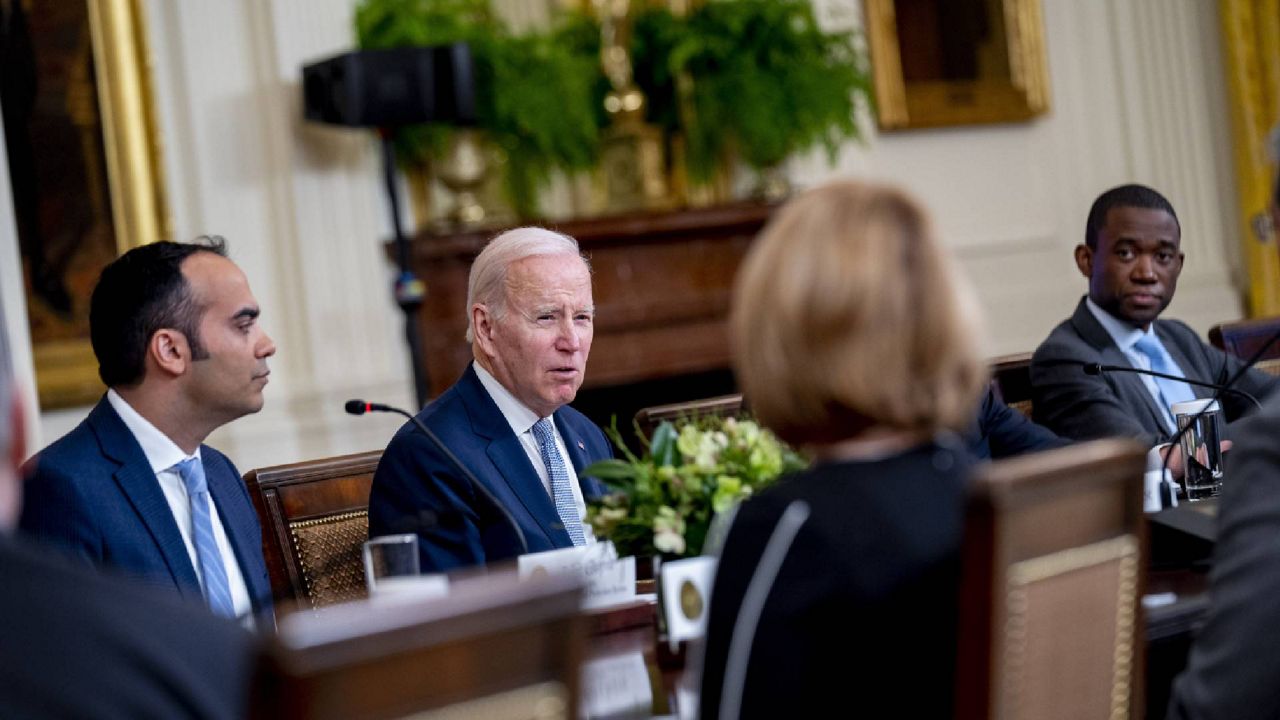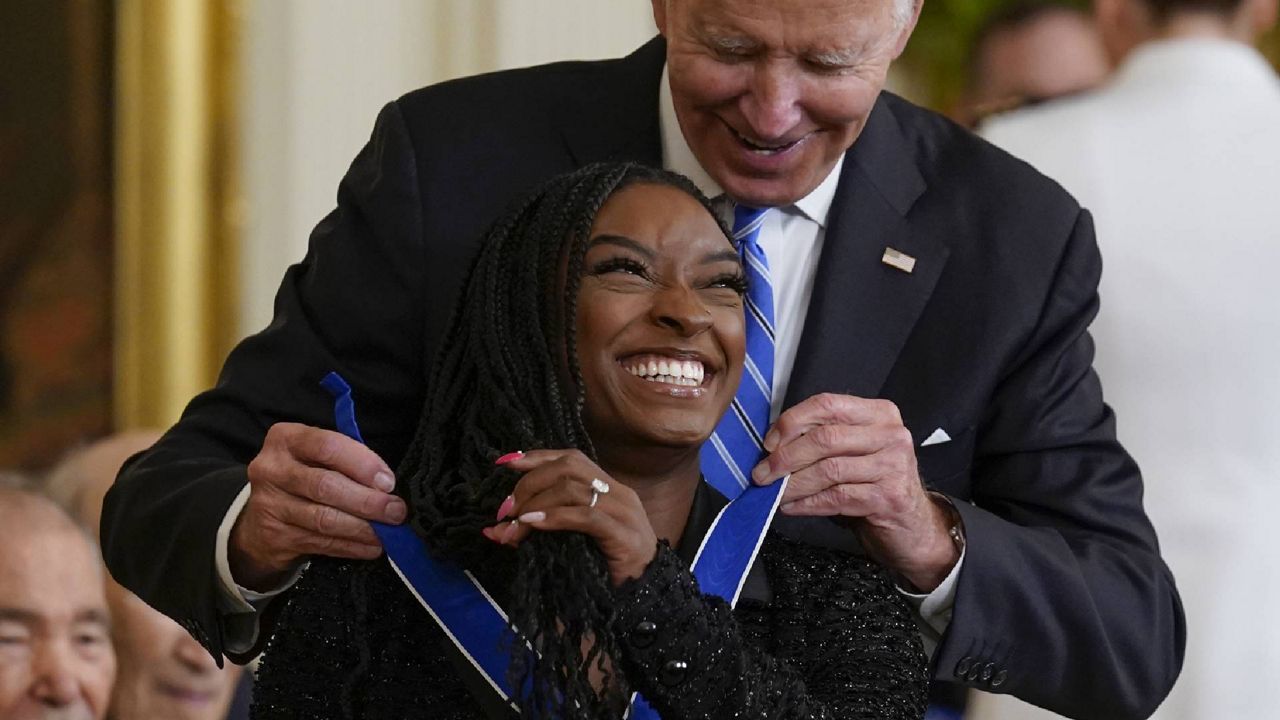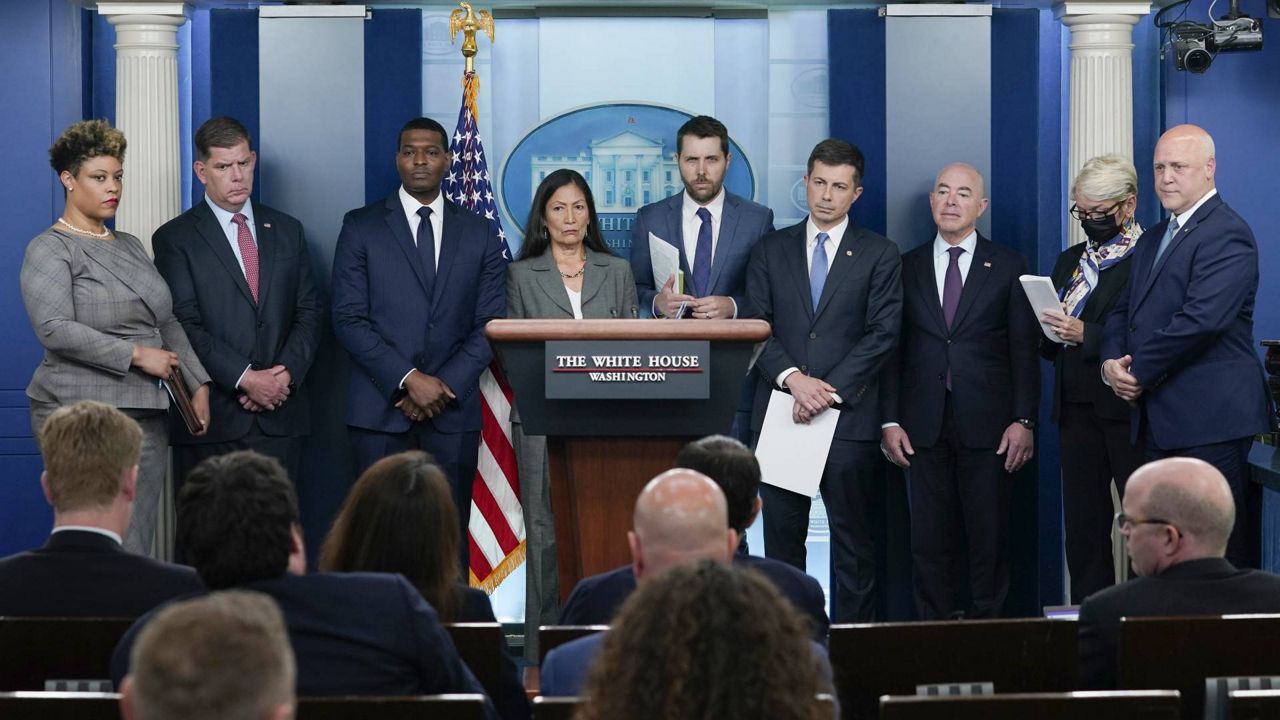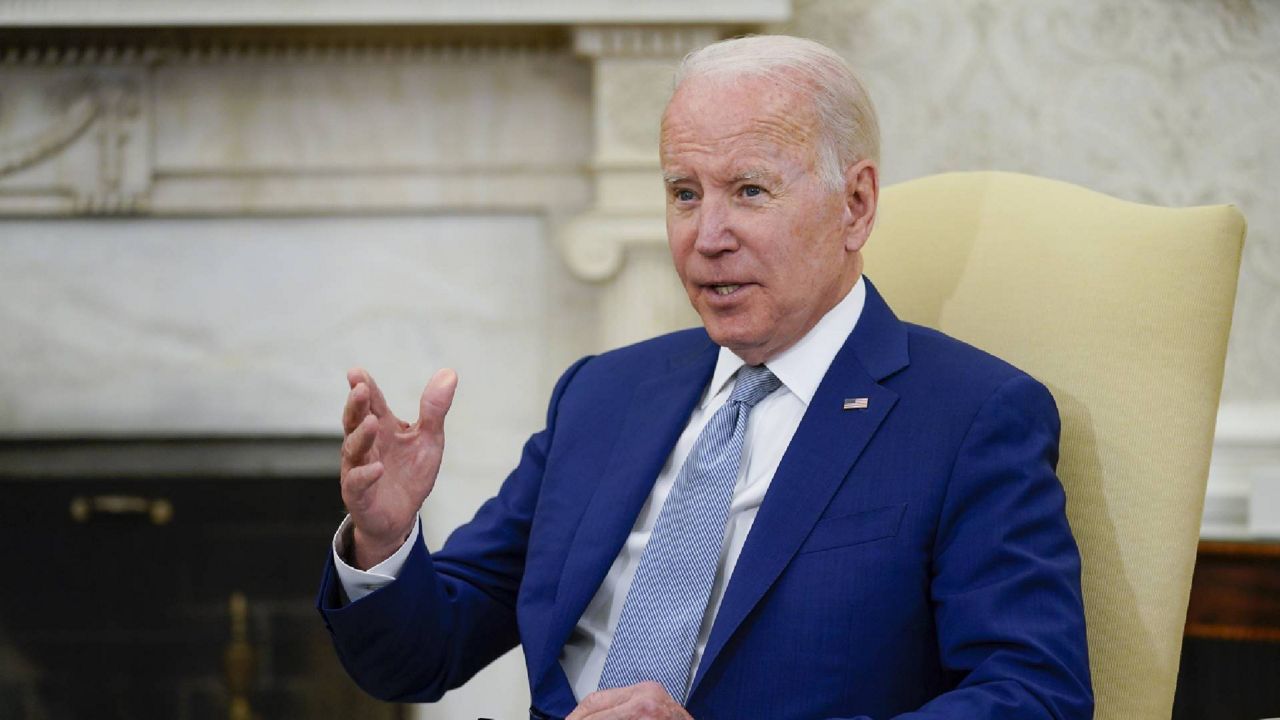President Joe Biden met Wednesday with the Republican senator leading negotiations on the infrastructure package that the White House wants to pass early this summer.
Biden and Sen. Shelley Moore Capito (R-W.Va.) met one-on-one in the Oval Office Wednesday afternoon, instead of with the group of Republican senators who have been involved in the talks.
The meeting lasted about an hour, and the two agreed to talk again on Friday, according to the White House.
In a statement Wednesday evening, the White House said: “This afternoon, the President hosted Senator Capito for a constructive and frank conversation in the Oval Office about how we can drive economic growth and benefit America’s middle class through investing in our infrastructure."
Sen. Capito and her colleagues unveiled the latest GOP proposal for an infrastructure bill last week, a $928 billion plan that would require unused COVID-19 relief funds to pay for it.
That proposal came after the White House’s $1.7 trillion counteroffer, a reduction from the administration’s original $2.3 trillion outline, the American Jobs Plan, that would instead aim to move some priorities to other legislation.
President Biden hasn’t altogether dismissed the GOP plan, but the White House has said their plan to pay for it is likely untenable, since most of the approved COVID-19 funds have already been allocated.
“The President is looking forward to hosting Senator Capito on Wednesday afternoon at the White House, where they will continue their bipartisan negotiations about investing in our middle class and economic growth through infrastructure,” the White House said in a statement earlier in the day.
The administration has set a tentative June 7 deadline for progress on infrastructure, the day that Congress comes back to Washington after a Memorial Day recess.
“By the time that they return, which is June 7, just a week from tomorrow, we need a clear direction,” Buttigieg said Sunday on CNN's “State of the Union.” “The president keeps saying inaction is not an option. And time is not unlimited here.” He said the American people “expect us to do something.”
President Biden previously let a Memorial Day deadline pass, in part because he sees the negotiations as promising and the chance at a bipartisan deal possible, drawing on his more than four decades in the Senate.
“He’s appreciative and heartened by the good faith effort that we've seen from Republican senators,” said Karine Jean-Pierre, the White House principal deputy press secretary aboard Air Force One Tuesday. “But as the president said last week, we do need to finish these negotiations soon.”
The president’s current $1.7 trillion proposal still calls for an increase in the corporate tax rate from 21% to 28%, an idea that both Republicans and moderate Democrats have dubbed a no-go.
Without a bipartisan agreement, Biden will be faced with trying to muscle support from Democrats alone. That approach also poses political challenges in the narrowly divided House and Senate where the administration has few votes to spare if the president tries to push the package to passage under budget rules that allow for a majority vote.
The White House said the president is also eyeing action in the House next week when the Transportation and Infrastructure Committee is set to begin debating a big highway reauthorization bill that is being closely watched as a potential building block toward the broader package.
Jean-Pierre noted the panel’s June 9 hearing as “a relevant date in terms of the overall time frame.”
That week, she said, “will be incredibly critical.”
A similar bipartisan highway bill is underway in the Senate and those bills, along with others being negotiated over water resources and other public works could make up the foundations for a broader package.







